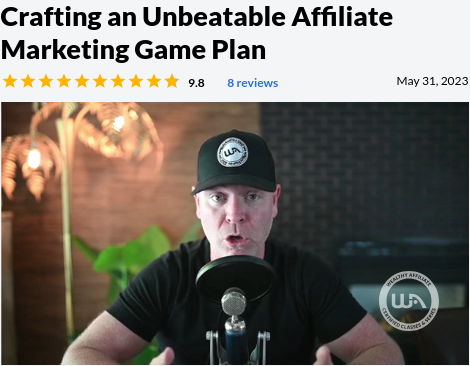
I’m going to kick things off by highlighting a truth that’s often overlooked: In the world of email marketing, simplicity reigns supreme. Now, I know what you might be thinking – ‘Simplicity? But what about all those flashy emails I receive daily?’ Trust me, I get it. The temptation to use all the bells and whistles available is real, but that’s exactly where many emails fall flat. See, what truly drives engagement is not complexity, but the clear, effortless communication of your message.
Let’s break down what adopting simplicity in your email campaigns might look like. First, choose layouts that are clean and not cluttered with too many images or blocks of text. Then, you can focus your content to ensure that every word counts – after all, nobody enjoys wading through fluff. In terms of design, pick out colours and fonts that won’t make your readers squint or struggle to find the information they need.
Simplicity also extends to the nature of your content. It’s not just the aesthetics; it’s delving into the heart of what your audience finds valuable and presenting it without needless complexity. Consider this: a study by the Email Open Rate Statistics report showed that emails with subject lines that clearly stated the intent had higher open rates. Simple, effective, and to the point – that’s the sweet spot.
This approach also sets up a smooth transition into an even more essential strategy for the future of email marketing. Personalization is not just a buzzword; it’s the golden ticket to capturing and holding your audience’s attention. And here’s the beauty of it – simplicity and personalization go hand in hand. When you begin with a simple foundation, it’s much easier to build personalized experiences that resonate with each segment of your audience.
Next-Level Personalization: Crafting Targeted Email Experiences
Let’s be honest, everyone likes to feel special, and that’s exactly what personalization in email marketing is all about. But if you’re still stopping at “Dear [First Name],” you’re merely scraping the surface of what’s possible. In 2024 and beyond, email marketing isn’t just about sending messages, it’s about delivering experiences.
So what does this mean for you? It means segmenting your audience in innovative ways that go beyond demographics. You’re going to find out about the revolutionary potential of behavioural data. Imagine sending emails that resonate not just with who your customers are, but with what they do. The conversion rates for emails tailored to past purchase history or browsing behaviour can be astonishing.
Moreover, this isn’t just about using data; it’s also about crafting a narrative that speaks to the individual. It’s time to start harnessing the full potential of storytelling in personalization, making each subscriber the hero of their journey with your brand. And yes, AI and machine learning are now being used to create these personalized storylines on a scale that was previously unimaginable.
Privacy is, rightfully, a huge concern for many people. While advancing your personalization game, I’m here to help you navigate the intricacies of data protection laws. Personalization will need to be thoughtful and consensual, balancing customization with respect for personal boundaries.
You can always adjust your approach down the road, but start by choosing something that resonates with you – and more importantly, with your customers. Whether it’s a quiz that segments your audience or an AI tool that curates content based on user interest, the key is to continually refine and elevate the personal touch you bring to your emails.
Innovation in the Inbox: Testing Novel Email Marketing Strategies
Just don’t focus too much on perfection when it comes to email marketing. A lot is happening very quickly, and each business has a unique journey with different audiences. That’s why I can’t stress enough the importance of experimentation.
You’re going to find out that some of the most effective campaigns arise from a willingness to test the waters. Whether it’s playing with send times, trying new email formats, or daring to use bold, conversational tones, variety is key.
In my opinion, the true heart of innovation is analytics-driven creativity. Set up some A/B testing scenarios – you might be surprised at which version garners the best results. Keep one element constant, and adjust the other. Repeat.
You can always begin with small changes to your templates or email copy, and keep your eyes on how these tweaks play with your audience. Detailed reporting and analytics will be your best friends in this process.
And guess what? As you experiment, you’ll gather a treasure trove of data about your recipients. This data is quite literally a map to uncharted territories of your subscribers’ preferences and habits.
Now, segueing smoothly into section 4, Staying Ahead: Keeping Up-to-Date with Email Marketing Trends – imagine building on the data from your experiments with the latest insider knowledge from the industry. That’s how you go from good to great.
Staying Ahead: Keeping Up-to-Date with Email Marketing Trends
The world of email marketing doesn’t stand still, and neither should you. To stay a step ahead, you’ve got to keep a close eye on emerging trends and technologies. Think of it as equipping your toolbox for the future—every new skill you learn is an investment in your marketing prowess.
First off, I want to stress the importance of industry newsletters and blogs. They’re your bread and butter for the latest happenings. You’re going to find out about innovations in automation, advances in AI that personalize content, or fresh design tactics that catch a reader’s eye. Subscribe to them, read them, and apply that newfound knowledge.
One particularly exciting trend is the integration of AI and machine learning in email campaigns. Artificial intelligence is changing the game by allowing for more sophisticated segmentation and predictive analytics, ensuring that the right message reaches the right person at the right time.
Next, webinars and virtual conferences are gold mines for insights. They not only offer the latest industry wisdom but often provide practical examples of how to implement new strategies. Plus, attending these events (even virtually) is a great way to network with peers who can share their first-hand experiences.
Finally, if there’s one thing I’ve learned, it’s that your knowledge is your best asset. Never shy away from courses or certifications that can bolster your expertise. Whether it’s mastering a new email marketing platform or learning how to craft more engaging content, taking the time to sharpen your skills will pay off in dividends.
Now, as you’re soaking up all this knowledge, remember not to get lost in the noise. It’s easy to chase after every shiny new technique, but the real trick is figuring out what matters to your audience. That’s going to include prioritizing the impact of your content over the sheer volume of emails you send. So let’s keep that in mind as we move on to talk about why the quality of your email content is non-negotiable.
Prioritizing Impact: Focusing on the Quality of Your Email Content
Choose something that resonates with you: a beautifully crafted email that pops into your inbox, or a flurry of rushed messages. I’m guessing you prefer the former. That’s because, in the world of email marketing, quality eclipses quantity every time. The right message, less frequently, trumps the daily spam.
Crafting high-quality emails isn’t just about word choice or pretty graphics; it’s a strategy. It’s thinking about your reader and what will add value to their day. A well-timed, relevant, and informative email is like a welcome guest; they’ll always be invited back. On the other hand, an inbox cluttered with low-value content is no more than a nuisance.
A good rule of thumb is to send something only when you have something worthwhile to say. Ask yourself if this email will teach, inspire, or offer something of value. If the answer is no, reconsider hitting that send button. It’s not about the volume of your voice but the weight of your words.
So, how do you create that perfect mix? Get to know your audience and customize your content. Yes, analytics and data play a crucial role, but so do creativity and intuition. Every word, image, and call to action should serve a purpose. Think of each email as a valuable chapter in the story you’re telling your subscribers, not just another leaflet handed out in the street.
Remember, when you prioritize quality over quantity, you’re respecting your subscriber’s time and inbox. This approach not only preserves the integrity of your brand but also paves the way for a higher return on investment. Subscribers are more likely to engage with and act on fewer emails of greater substance.
Metrics that Matter: Measuring Email Marketing Success
Now I’m going to tie it all together with what I consider the backbone of any successful email marketing strategy: the art of measurement. It’s not just about sending emails, it’s about understanding the impact they have. You’re going to find out why tracking your success isn’t just helpful, it’s crucial. By analyzing your open rates, click-through rates, and conversions, you delve into the treasure trove of data that is your consumers’ engagement levels.
If you want to adjust your email campaigns for better performance, data is your roadmap. High open rates can signal compelling subject lines or a strong connection with your audience, whereas lagging click-through rates might point you toward revising your call-to-action. And don’t worry too much about low numbers in the beginning. Use them as a baseline to grow from.
But remember, the numbers don’t just signify success or failure. They’re your feedback loop, your direct line to what’s resonating with your audience, guiding you toward more personalized, high-quality content. It’s in that data you’ll see the story of your email strategy unfold, allowing you to make informed decisions and carve a path to higher engagement and conversion.
Choose something that resonates with you from this article, whether it’s the push toward simplicity, the deep dive into personalization, the clever play with different marketing strategies, the dedication to keeping up-to-date, or the art of prioritizing quality. You can always adjust your approach down the road; the most important step is to start, measure, and refine.
In conclusion, your first attempt at any of these strategies doesn’t need to be your last. Just don’t focus too much on perfection right out of the gate. Growth is a process of iteration and improvement, and with each round of emails, you adapt and advance. I hope that you take these strategies to heart, apply them to your email marketing initiatives, and watch as your campaigns transform into more effective, more engaging, and more successful conduits of communication between you and your customers. Measure, refine, and succeed—that’s email marketing for the future.






